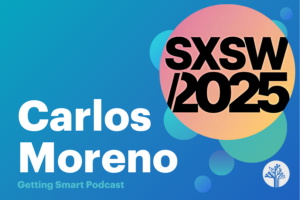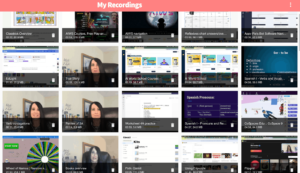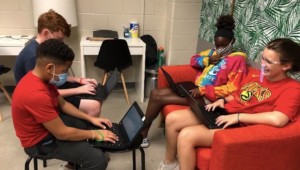School Isn’t About Classes, It’s About Learning
By: Garrett Smiley. The easiest way for schools to ensure individual relevance and therefore counteract concerning mental health trends is by letting students lead their education through curiosity.
Human Expression: Why It Should Be A Global Goal And How Crypto Can Help
Human expression is essential to a meaningful future. New mediums and models are making it easier than ever to make a living. We must adapt how we talk about creativity.
6 Ways Screencastify Can Support Online Learning Through Video
Rachelle Dene Poth shares ideas for using Screencastify in the classroom.
Nate Kellogg & Gwen Baker on Real-Time Redesign for Schools and Districts
On this episode of the Getting Smart Podcast, Tom sits down with members of The Strategy Lab initiative to discuss real-time redesign.
How Helping Students Get Comfortable With Failure Can Increase Economic Equity
M. Archbold & R. Harris. Michael and Ron share how equity begins when students face challenges, find resilience and persevere in the face of adversity.
Thomas Homer-Dixon on Commanding Hope and the Nature of Complexity
On this episode of the Getting Smart Podcast, Tom talks with Thomas Homer-Dixon about his new book, Commanding Hope and rising complexity.
Ten Ways Schools Can Build Students’ Social Capital
By: Dr. Tyler S. Thigpen. What really is our most essential form of wealth? Relationships of unconditional love and support are invaluable. Read 10 ways schools can help children become rich in relationships.
Remote Work as a Long Term Solution for Schools
By: Kate Eberle Walker. In a post-pandemic world, to remain attractive as employers, school districts should consider remote work solutions to win the battle for employee retention.
How Smart Machines Are Improving History and Civics Education
Tom Vander Ark and Mason Pashia explore how AI and tech are impacting the field of history and civics learning education.
How a Fun Mother-Daughter Project Became Two Groundbreaking Publications
By: Annette Bazira-Okafor. The founders of Black Girls Magazine didn’t see themselves represented in the media, so they set out to change that—and learned about the power of representation along the way.












